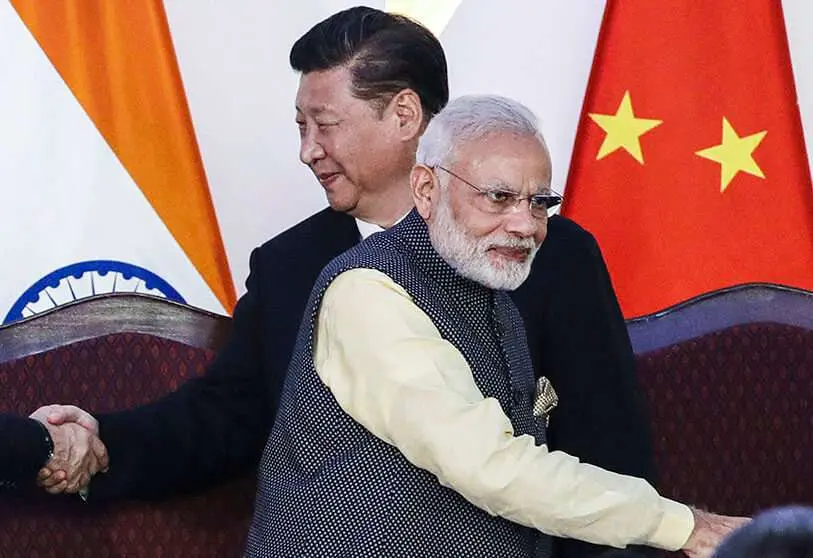China opens another front with India

China's meteoric rise to the summit of being considered the world's great superpower, in dispute with the United States, adds a new front to those it already has in place. Hostilities have been reopened, this time with another great power, India, with whom he had so far maintained a difficult status quo since the war they both fought in 1962. That conflict, which lasted barely a month, resulted in more than a thousand deaths on each side and the Chinese occupation of the Aksai Chin plateau, northeast of Kashmir. But that armistice was always considered as a humiliation by India, which has not ceased to claim its sovereignty over that area of the Himalayas, in addition to claiming the subsequent occupation by China of 38,000 square kilometers of the state of Sikkim, and rejecting the claims of Beijing over another strip of 90,000 square kilometers of the northeastern Indian state of Arunachal Pradesh.
The pretext for the new skirmishes between soldiers from both countries has been the Indian claim to turn a path in the Galwan valley, which borders the "occupied" Aksai Chin plateau, into a high-capacity road. The fighting began with sticks and stones last May, but the clashes have escalated since mid-June, when India recognized a score of deaths among its troops, while China also admits an unspecified number of casualties.
We are talking about the two great powers of Asia, both demographic and nuclear, which have not ceased in the last half century to feed their respective nationalisms and their corresponding hegemonic ambitions. These enormous dimensions are what cause the concern of the chancelleries, and the corresponding diplomatic movements to support one or another power.
The growing Chinese-American struggle has led the American president, Donald Trump, to bring positions closer and to strengthen ties with the Indian prime minister, Narendra Modi, who in turn has also accentuated his confrontation with Pakistan under the pretext of suppressing the autonomy of the Kashmir region. Chinese President Xi Jinping, in turn, supports the claims of Islamabad, to which he has already ceded a large strip of land bordering Kashmir. The Chinese leader has strengthened his oil trade with Russia and Iran, as a challenge to the United States.
This resurgence of border disputes with India is in addition to those between China and practically all of its neighbours to the east and south of the country, from Japan to Vietnam, and of course the latest gestures and threats against Hong Kong and the island of Taiwan, which Beijing does not cease to claim as parts of the country and which must be fully assimilated, either by degree or by force.
China's policy of sweet diplomacy seems to be giving way to an ostensible hardening, something inevitable on the other hand for those who try to set themselves up first as the undisputed hegemonic superpower of Asia. Networks of connection and power such as the New Silk Road do not start annexationist efforts. China's formidable military rearmament in recent years, which does not seem to have stopped the deadly coronavirus pandemic, is seen as one of the fundamental stepping stones of its expansionism, denied time and again by the spokespersons for Beijing's diplomacy, but which the reality, for example, of the construction and consolidation of the artificial islands in the South Sea, equipped with military cantonments, naval bases and airfields, seems to belie.
The pandemic, which originated in the populous city of Wuhan, has not stopped the Chinese strategy aimed at their undisputed continental dominance, the ramp to launch a broader hegemony. There are many analyses that predict that the next great conflict of humanity will break out in Asia. The continent, in fact, is home to two mega-countries, which together account for almost 40% of the world's population. Both, from very different points of view, systems and cultures, aspire to a historical destiny that has many possibilities of encountering a much more extensive and brutal confrontation than that of bloody border skirmishes.

